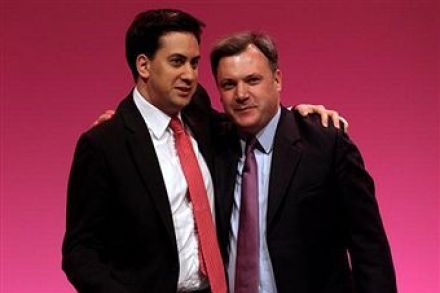Signs of nerves from the Lib Dems
Judging by today’s reports, it’s fear and self-loathing in Lib Dem Land. And it’s not just that one of their Scottish candidates has quit the party in protest at its, ahem, “draconian policies” and “dictatorial style”. No, according to this insightful article by Melissa Kite and Patrick Hennessy in the Sunday Telegraph, there are more manoeuvrings going on than that. Here are some passages from it, by way of a summary: 1) Chris Huhne, waiting in the wings. “Mr Huhne, who ran Mr Clegg close in the last Lib Dem leadership election, has told colleagues privately that he would be interested in leading his party in the future.” 2) A















